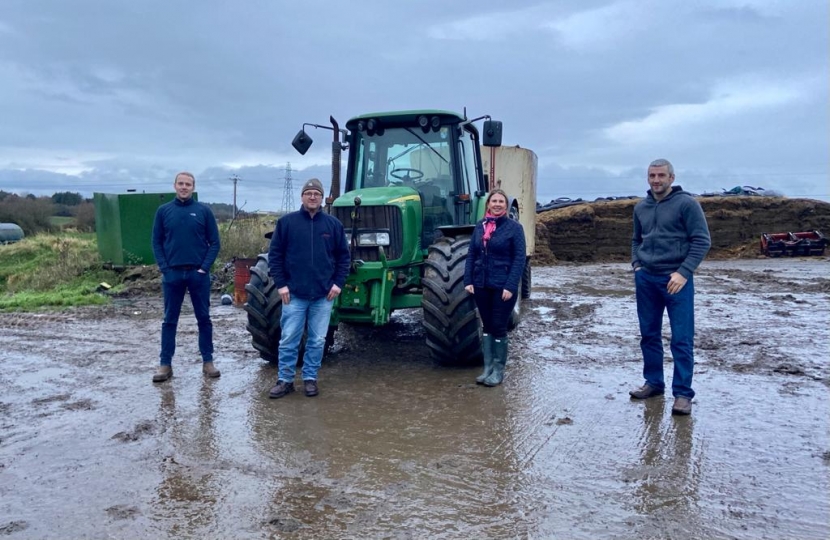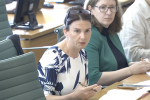
The MP for Copeland has formed a farming transition group aimed at supporting the local farming sector through the agricultural transition period.
Following the the Government’s landmark Agriculture Bill receiving Royal Assent last month, Trudy Harrison MP this week met with local farmers and the NFU at Langley Park Farm in Waberthwaite to hear directly from farmers about their concerns and any challenges they face ahead of transitioning to the new system outside of the EU.
Working directly with local farmers and land managers across Copeland, Mrs Harrison’s support network will meet virtually on a monthly basis to assist in delivering communications on the agriculture sector and transition period.
Last month, the Government published The Path to Sustainable Farming: An Agricultural Transition Plan, outlining the changes that will come into force over a seven year period, helping farmers adapt and plan for the future.
2021 marks the start of the transition period and the beginning of the process to phase out the Basic Payment Scheme (BPS), a scheme made up of direct payments to farmers based on how much land is farmed.
It will be replaced by a new scheme whereby farmers are paid for producing ‘public goods’ such as improving the environment and animal health and welfare as well as reducing carbon emissions and will be co-designed and tested together with farmers, land managers and experts.
The Act also sets out measures to increase transparency and fairness in the supply chain for farmers and food producers as well as the need to encourage the production of food in England, in an environmentally sustainable way.
Trudy said: “Government has published a roadmap, outlining a new system that is tailored in the interests of farmers, helping them to deliver for the environment, animal welfare and climate change whilst also running more profitable, productive and sustainable businesses.
“However, in speaking to local farmers at Langley Farm it is clear that many questions will need to be answered to help farmers prepare for the transition and it is vital that they have the time and support to adapt. Changes of this significance can be intimidating, and it is natural that many farmers across Copeland are worried about the phasing out of Direct Payments.
"That is why I want to arrange a network group on a local level to discuss how we can assist in directing support and information to every farm and land manager in our area and feedback to Government the voices of the sector in our area."
Moving away from the EU’s Common Agricultural Policy, the centre piece of the Agricultural Transition Plan will be made up of three component parts based around rewarding farmers and land managers for carrying out sustainable farming practices by 2028:
• The Sustainable Farming Incentive will pay for farmers for actions that they take to manage their land in an environmentally sustainable way.
• Local Nature Recovery will pay farmers for actions that support local nature recovery and deliver local environmental priorities.
Landscape Recovery will support the delivery of landscape and ecosystem recovery through long-term, land use change projects.
NFU Cumbria County Chairman Ian Bowness said: “Farming is changing and I look forward to working with Trudy to co-create the schemes that will help farmers in Cumbria to improve productivity and animal welfare, encourage innovation and realise our ambition to produce increasingly climate-friendly food.
“However, the rate at which direct support reductions will take place leaves farmers with significant questions. These payments have been a lifeline for many farmers especially when prices or growing conditions have been volatile and will be very difficult to replace in the first four years of this transition. I’m therefore pleased that one of our local MPs is keen to feedback to Government the voices of the sector in our area and I’d urge all farmers in the constituency to join Trudy’s group.”
Mrs Harrison is asking farmers and land owners across Copeland wishing to join the group to get in touch by emailing [email protected] or calling 01229 718333.


